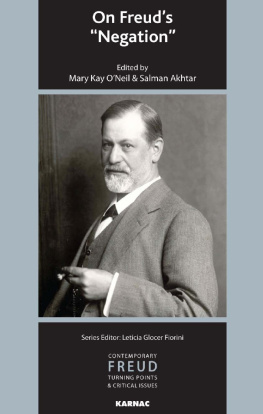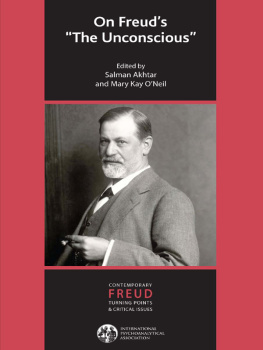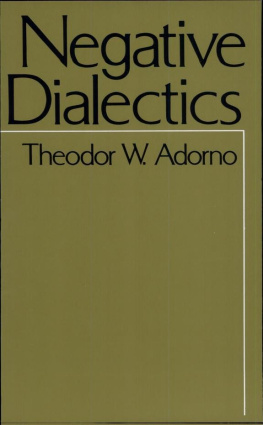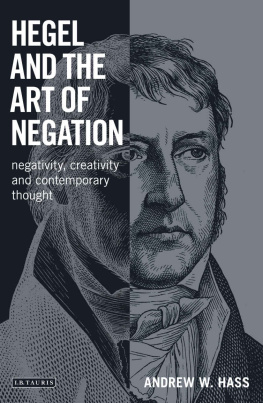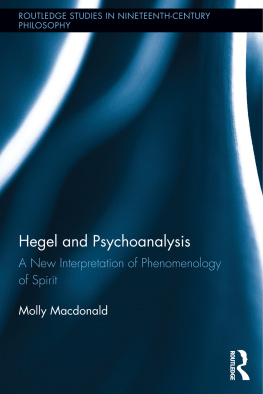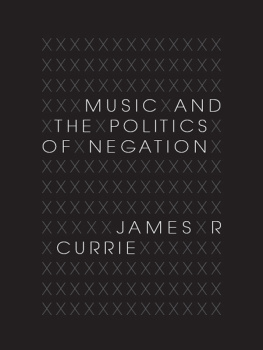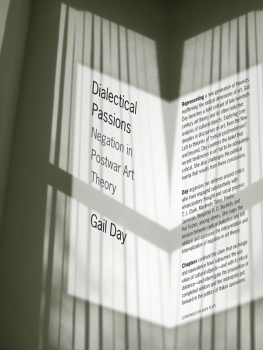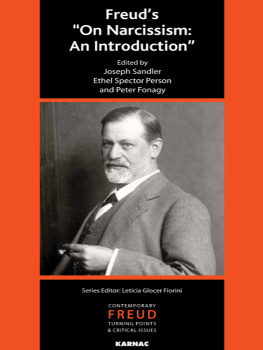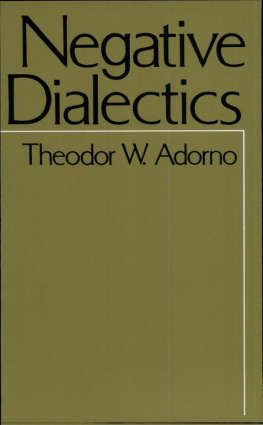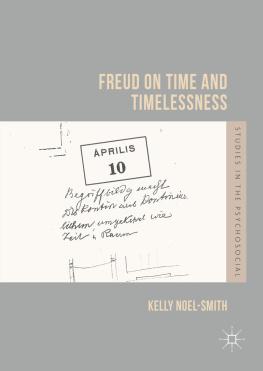Chapter 4, Andr Green, The Work of the Negative and Hallucinatory Activity (Negative Hallucination), reproduced by permission from The Work of the Negative (London: Free Association Books, 1999).
First published in 2011 by
Karnac Books
118 Finchley Road
London NW3 5HT
Copyright 2011 by The International Psychoanalytical Association
All contributors retain the copyright to their own chapters.
The rights of the editors and contributors to be identified as the authors of this work have been asserted in accordance with 77 and 78 of the Copyright Design and Patents Act 1988.
All rights reserved. No part of this publication may be reproduced, stored in a retrieval system, or transmitted, in any form or by any means, electronic, mechanical, photocopying, recording, or otherwise, without the prior written permission of the publisher.
British Library Cataloguing in Publication Data
A C.I.P. for this book is available from the British Library
ISBN: 9781780490250
Edited, designed, and produced by Communication Crafts
Printed in Great Britain
www.karnacbooks.com
CONTEMPORARY FREUD
IPA Publications Committee
This significant series was founded by Robert Wallerstein and first edited by Joseph Sandler, Ethel Spector Person, and Peter Fonagy, and its important contributions have greatly interested psychoanalysts of different latitudes.
The objective of this series is to approach Freuds work from a present and contemporary point of view. On the one hand, this means highlighting the fundamental contributions of his work that constitute the axes of psychoanalytic theory and practice. On the other, it implies the possibility of getting to know and spreading the ideas of present psychoanalysts about Freuds oeuvre, both where they coincide and where they differ.
This series considers at least two lines of development: a contemporary reading of Freud that reclaims his contributions and a clarification of the logical and epistemic perspectives from which he is read today.
Freuds theory has branched out, and this has led to a theoretical, technical, and clinical pluralism that has to be worked through. It has therefore become necessary to avoid a snug and uncritical coexistence of concepts in order to consider systems of increasing complexities that take into account both the convergences and the divergences of the categories at play.
Consequently, this project has involved an additional taskthat is, gathering psychoanalysts from different geographical regions representing, in addition, different theoretical stances, in order to be able to show their polyphony. This also means an extra effort for the reader that has to do with distinguishing and discriminating, establishing relations or contradictions that each reader will have to eventually work through.
Being able to listen to other theoretical viewpoints is also a way of exercising our listening capacities in the clinical field. This means that the listening should support a space of freedom that would allow us to hear what is new and original.
In this spirit we have brought together authors deeply rooted in the Freudian tradition and others who have developed theories that had not been explicitly taken into account in Freuds work.
In Negation, Freud stated that negation is the way of reaching consciousness of what is repressed without removing the repressive process. In a very synthetic way, he puts at stake the origin of intellectual judgement, its relation to the pleasure principle, the concept of negative judgement as a mark of repression, as well as decisions related to the recognition of the internal and external world, subjective and objective categories, and the role of perceptions and reality-testing in this frame.
The editors, Mary Kay ONeil and Salman Akhtar, together with the contributors to this volume, accepted the challenge to consider Freudian ideas and update them.
Special thanks are due to Charles Hanly, the President of the IPA, for his support, to the editors, and to the contributors to this volume, which enriches the Contemporary Freuds series.
Leticia Glocer Fiorini
Series Editor
Chair of the Publications Committee of
the International Psychoanalytical Association
ACKNOWLEDGEMENTS
We are deeply grateful to the distinguished colleagues who contributed to this volume. We appreciate their efforts, their sacrifice of time, and their patience with our requirements, reminders, and requests for revisions. With sincerity and affection, we acknowledge the guidance of the members of the IPA Publications Committee, especially its Chair, Leticia Glocer Fiorini. We are also thankful to Jan Wright for her skilful help in preparing parts of the manuscript and to Rhoda Bawdekar for keeping track of all sorts of matters during the books actual production. Finally, we wish to express our gratitude to Oliver Rathbone of Karnac Books who shepherded this project to its completion and to Klara King for her meticulous copy-editing.
Mary Kay ONeil & Salman Akhtar
EDITORS AND CONTRIBUTORS
Salman Akhtar is Professor of Psychiatry at Jefferson Medical College and a training and supervising analyst at the Psychoanalytic Center of Philadelphia. His more than 300 publications include 11 books Broken Structures (1992), Quest for Answers (1995), Inner Torment (1999), Immigration and Identity (1999), New Clinical Realms (2003), Objects of Our Desire (2005), Regarding Others (2007), Turning Points in Dynamic Psychotherapy (2009), Comprehensive Dictionary of Psychoanalysis (2009), Immigration and Acculturation (2011), and Matters of Life and Death (2011) as well as 30 edited or co-edited volumes in psychiatry and psychoanalysis, and 7 collections of poetry. He is also a Scholar-in-Residence at the Inter-Act Theatre Company in Philadelphia.
Csar Botella and Sra Botella are child and adult psychoanalysts in private practice. They are training analysts at the Paris Psychoanalytical Society (SPP). They have also treated psychosomatic patients according to the Paris Psychosomatic School (IPSO). Part of their time is devoted to the teaching and transmission of psychoanalysis as well as to research. International speakers, they have published numerous articles and books, the most recent being The Work of Psychic Figurability. They were awarded the Maurice Bouvet Prize in Psychoanalysis.
Jorge Canestri is a psychiatrist, psychoanalyst, and training and supervising analyst for the Italian Psychoanalytical Association and for the Argentine Psychoanalytic Association. He is a full member of the International Psychoanalytical Association and recipient of the Mary S. Sigourney Award in 2004. He is Chair of the Working Party of Theoretical Issues of the EPF, member of the IPA Conceptual and Empirical Committee, and Professor of Psychology of Health at the Roma 3 University. In addition, he is Editor of the Educational Section and a member of the Editorial Board of the International Journal of Psychoanalysis, IPA Global Representative (20052007), Representative to Europe for the Executive Committee (20072009), and President of the Italian Psychoanalytical Association. He has published numerous psychoanalytic papers in books and is the coauthor (along with Jacqueline Amati-Mehler & Simona Argentieri) of The Babel of the Unconscious: Mother Tongue and Foreign Languages in the Psychoanalytic Dimension. He has edited many books, including Pluralism and Unity? Methods of Research in Psychoanalysis (with Marianne Leuzinger-Bohleber & Anna Ursula Dreher), Psychoanalysis: From Practice to Theory, and Language, Symbolisation and Psychosis

